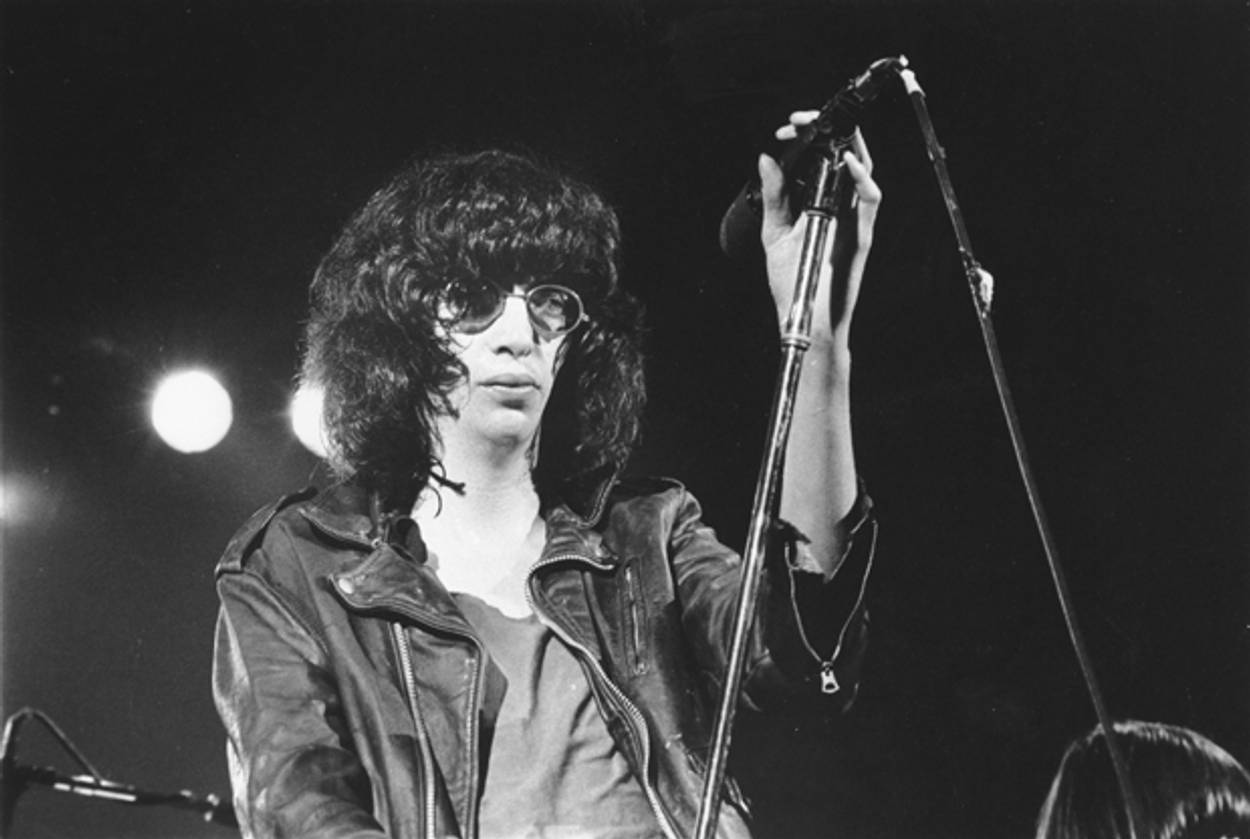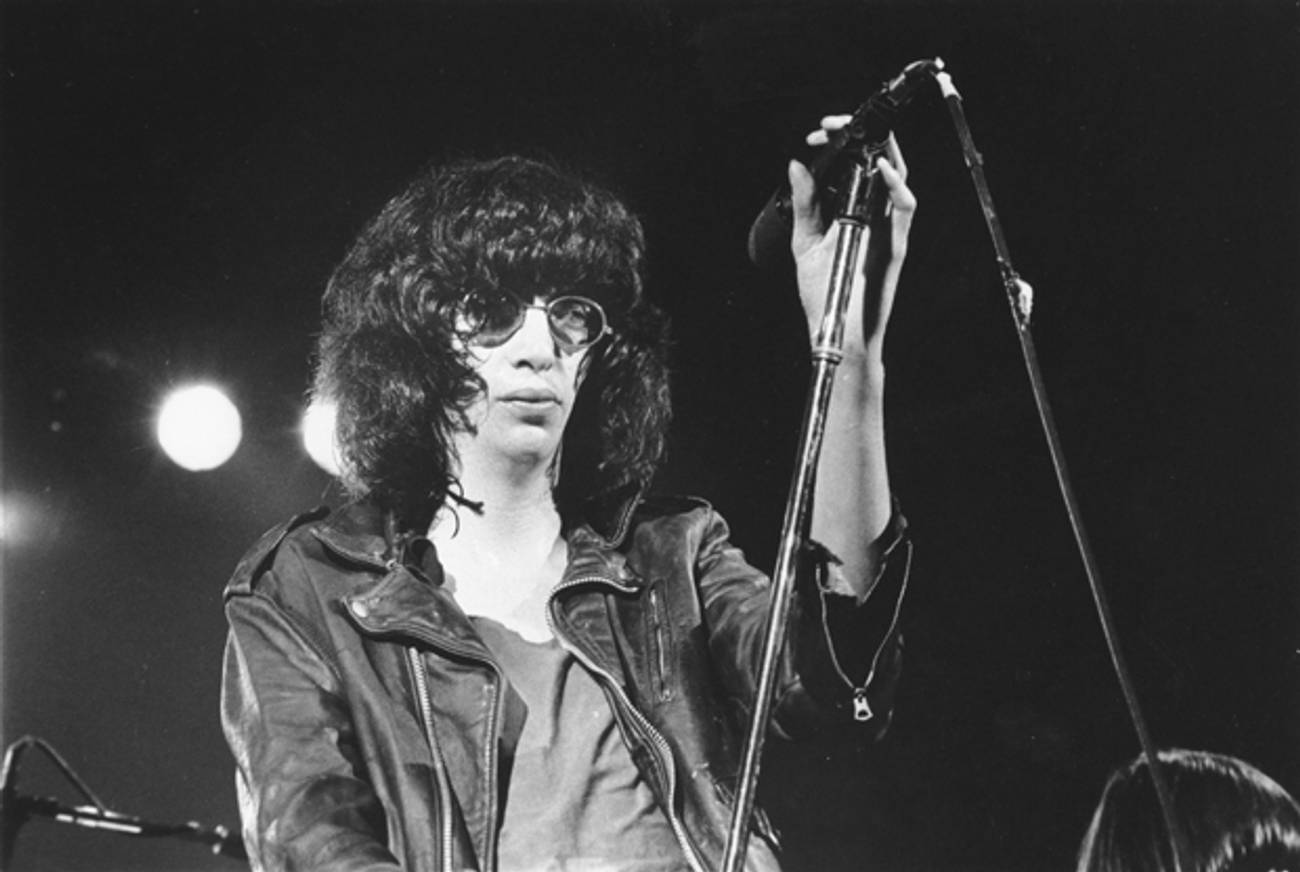Rejects
Punk was the last thing you’d expect American pop music to produce. And disgruntled Jews were the last people you’d expect to become rock stars.




The predominance of Jews in American popular music is an old story. From George Gershwin to Amy Winehouse, Jewish composers and entertainers have carved their place in the mainstream. But in the 1970s, a very different sort of Jewish artist emerged. Joey Ramone, Handsome Dick Manitoba, Sylvain Sylvain and the other founding fathers of punk rock were as disdainful of the culture as their predecessors were eager to help define it. Wearing leather jackets, singing about sex and drugs, and cultivating their status as rejects, they made music that was loud and fast and much more true to the traditional status of Jews as eternal outsiders.
Four decades later, the musical genre they helped invent is no longer controversial; punk bands like Green Day have their own musicals on Broadway. But to understand just why punk had become so popular, and what its success says about the American Jewish community, it is necessary to go back to New York circa 1974, where a group of nerdy Jews were busy reinventing themselves. Unofficial punk historian Jeff Wengrofsky talks to Long Story Short host Liel Leibovitz. [Running time: 49:40.]
[audio:https://www.tabletmag.com/audio/lss_podcast_091511.mp3]
Subscribe to Long Story Short.
Long Story Short is an in-depth monthly podcast about the people, events, and ideas that shape Jewish life and culture.
Long Story Short is an in-depth monthly podcast about the people, events, and ideas that shape Jewish life and culture.